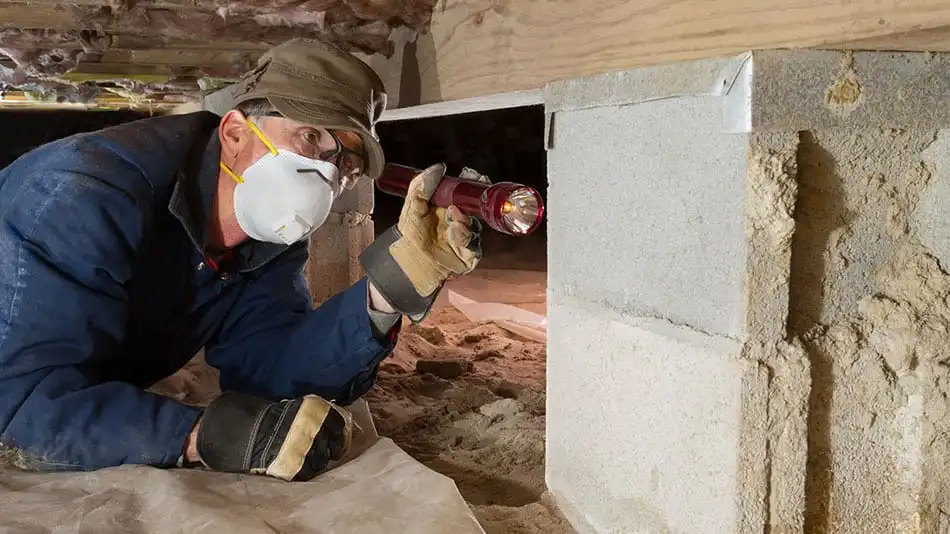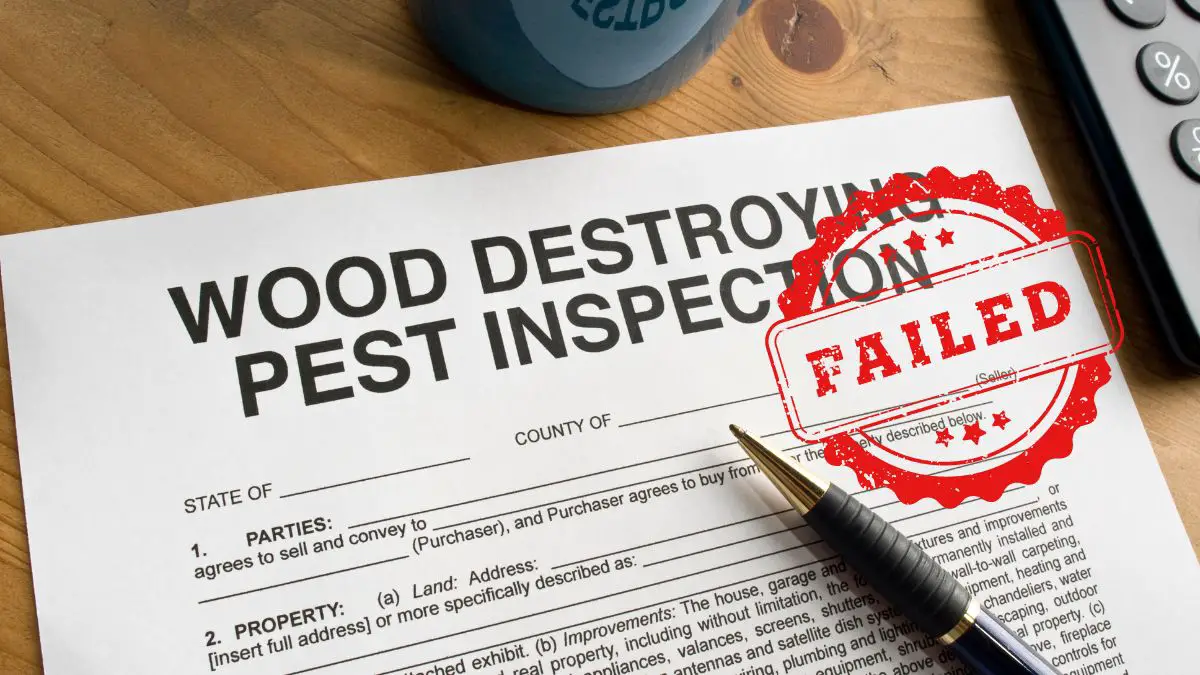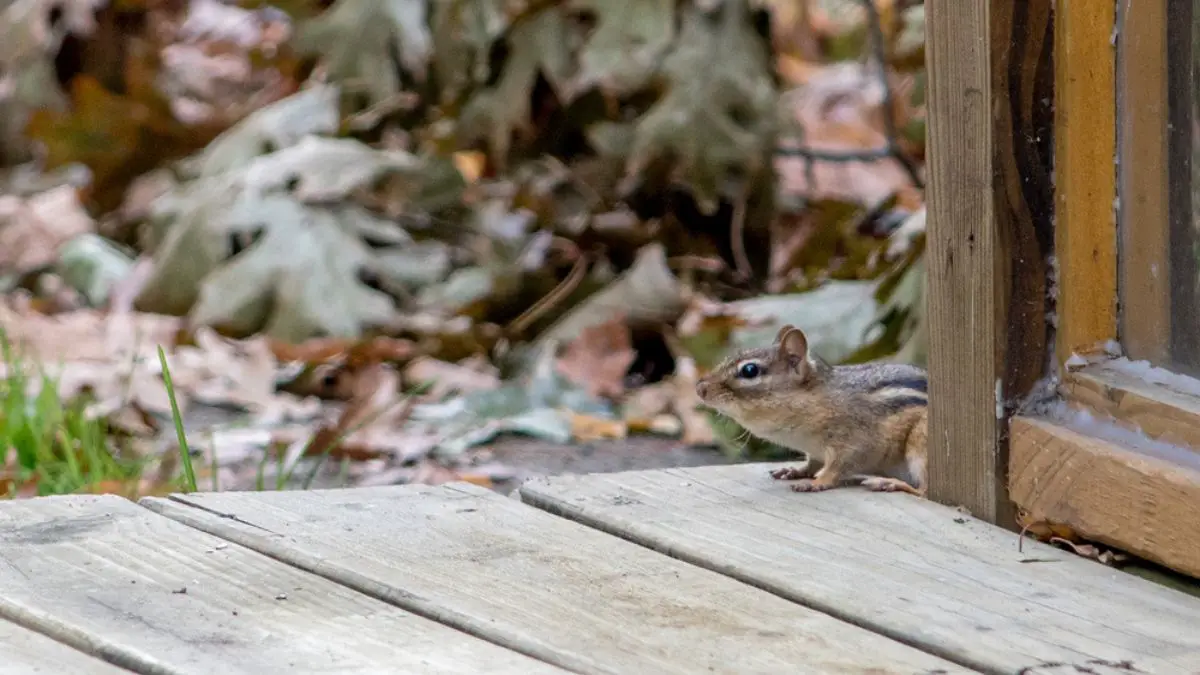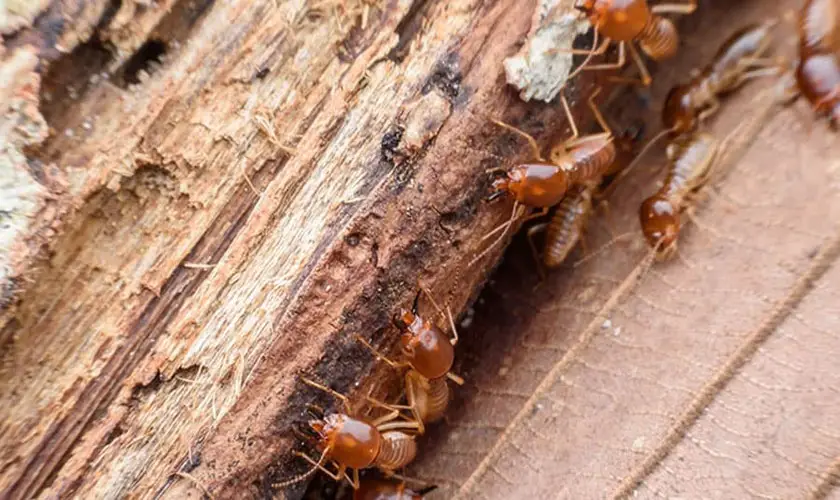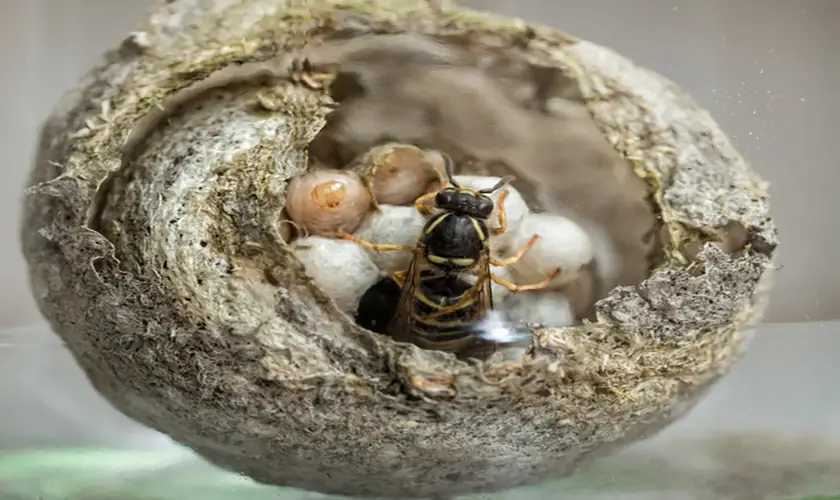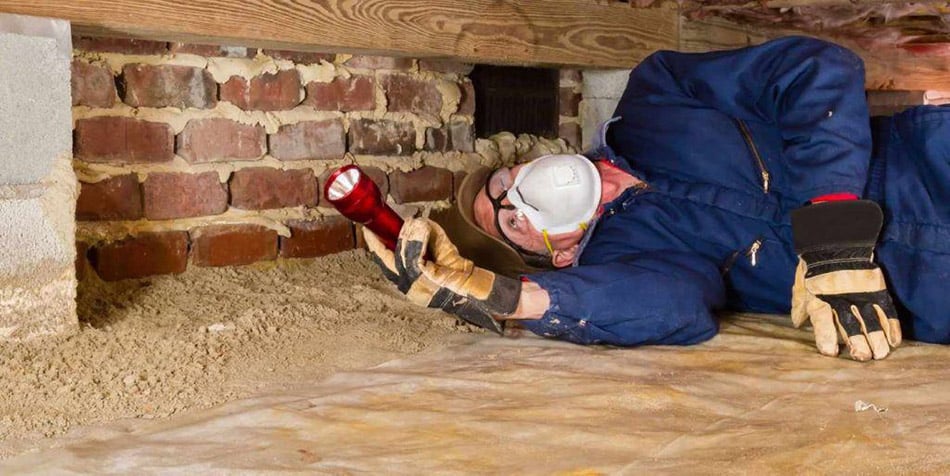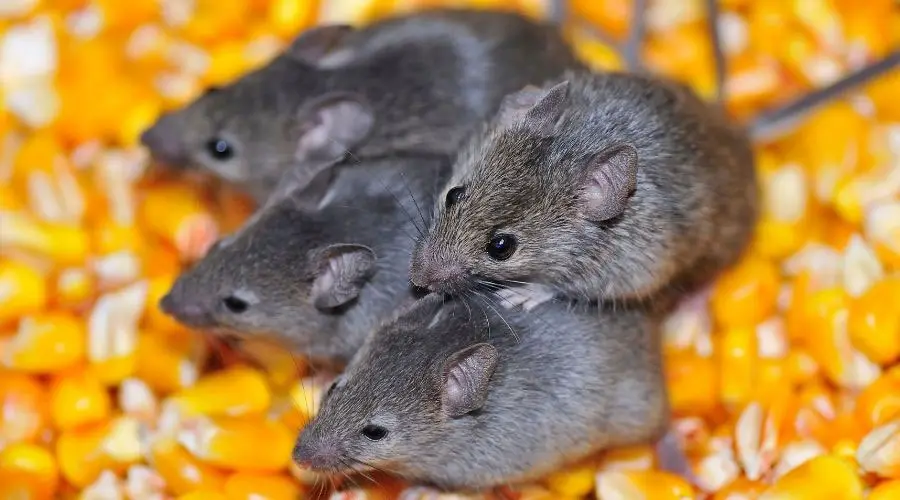
Have you seen small black grains like rice in your cupboards or on the floor alongside the wall? If so, you are sharing your home with mice. You might be unfortunate enough to meet up with a real live mouse as you stagger into the kitchen to get yourself a midnight snack. This meeting usually precipitates loud shrieking from you and a great deal of scurrying from the mouse, which magically disappears into a tiny crack.
As your heart sinks to realize that you have mice in your house and your mind starts reviewing your options, one of the first ideas is to eliminate all food sources for the mice. If there is no food, then surely the mice will leave?
Mice may stay in your house even if no food is available. This is because they can forage for food in a neighboring home or alley and have your living quarters as their home. On top of this, mice will eat many things we consider inedible, so it is relatively hard to get rid of mice in the first place.
Get FREE quotes from licensed pest control technicians in your area today. Whether you need spraying for ants, roaches, spiders, ticks, mosquitos, or bed bugs, We Can Help! All technicians are screened, licensed, and insured.
So what can be done about mice in your house? Mice have three basic requirements: food, water, and shelter. Unfortunately, most homes supply these three in abundance, so we will examine what actions you can take to make a residence less attractive to mice.
What Do Mice Eat In A Home?
Mice are omnivorous and will eat whatever they can find. Mice do not need to eat a great deal to survive. Smudges of food left on a plate, a few grains that spilled down a crack, or some crumbs fell when you left open the bread packet. These crumbs and smudges are enough to provide a meal for a mouse.
Mice will also eat insects, dead or alive, bird droppings on the roof, or even their droppings. When food is scarce, some mice may eat their babies or tails.
Favorite Food
A common belief is that cheese is the favorite food of mice. This belief is not factual; mice will actually eat anything they can find. Many of the foods humans eat are highly delectable for mice as well. High carbohydrate foods like chocolate and peanut butter are as addictive for mice as they are for humans. An animal protein, such as bacon, is another favorite of both mice and men.
Mice Proof Food Storage
Keeping all food items in secure storage bins is beneficial, reducing the food available for the mice. It also helps to prevent people from contracting diseases from mice. Mice urinate and defecate as they move. Mice, urine, and feces will compromise food exposed to mouse activity. Storage bins must be made from glass, metal, or robust plastic. The mice will chew any thinner plastic materials or plastic bags and will not prevent them from accessing the food.
Dust bins must have very securely fitting lids to prevent mice from accessing them. Rubbish contains many foodstuffs, and mice, with their keen sense of smell, are naturally attracted to dust bins.
Protect Pet Food From Mice
Feed pets at mealtimes, and then collect and wash their food bowls to prevent mice from eating any remaining pet food. Feeding pets on demand encourages mice, allowing them access to pet food and puts the pet at risk of contracting diseases carried by mice. Decant pet food into mice-proof containers for storage.
Cleanliness Discourages Mice
Wash cooking utensils, pots, plates, knives, and forks immediately after use. Mice are most active during the dark hours and will take advantage of dirty dishes left on the counter to help themselves to all the scraps and little bits of food left on the plates.
Water Access For Mice
Mice obtain water directly from water sources or indirectly from food. Mice can go without drinking water from a direct water source for more than a month. It isn’t easy to secure all direct water sources as mice can even drink condensation that collects on a window or other item. Drains, shower floors, leaking taps, pet water bowls, and toilets provide direct water sources for mice.
Shelter For Mice
Mice make Houdini look like a failure as an escape artist. Mice can fit through a hole the width of a ballpoint pen. Their skulls are tiny, and as long as their heads can get through, their elastic and pliable skeletons will also fit through. It isn’t easy to prevent mice from entering your home and using it as shelter.
Cracks along electrical conduits and plumbing make for easy access for mice. Materials used to fix cracks should include metal strands, similar to steel wool, as mice can chew through many sealing materials, including poorly cured concrete.
Mice are very persistent and have a fantastic sense of direction. Even if they are removed from a home, they can often find their way back to the house and slip through the small cracks and gaps. They will also keep checking places where they have previously found food for months after all food sources have been removed.
Mice Enjoy Eating Out
Should you remove all food sources from your home, it will not guarantee that the mice will leave. Some may go, but many will stay if they feel safe and can access a neighboring food source. It may be another home, a dust bin, or a dirty alley. If you live in the country, mice may choose to live in your house and forage for food outside.
How To Get Rid Of Mice
It is evident from the information that simply removing the food source in a home will not be sufficient to make the mice go away on their own. It is difficult for homeowners to know exactly where to block holes and cracks that allow mice to enter the home. People approach the problem of mice infestation by trying various methods to get rid of them.
1. Poisons
Poisons sold at hardware shops and general dealers are a popular solution to a mouse problem. Using poison in the home is dangerous as pets, and small children may access the poison. If the mice eat the poison, they often die inside walls or other inaccessible places. Their slowly rotting corpse causes foul odors in the house for weeks or even months. Poisons may also cause secondary poisoning in animals that prey on mice, such as owls and foxes.
2. Glue Traps
Glue traps are used by people who think that they are more humane than poison. Glue traps are cruel and decidedly unpleasant. The glue traps may cause mice to chew off their body parts in desperation to get away. The mice become covered in glue, and even if they are released somewhere else, they will probably not survive as the glue mats their fur and burns their skin. The homeowner will need the fortitude to check the glue traps regularly, kill the mice, and dispose of the bodies.
3. Water Traps
Water traps are made using a container with steep, slippery sides and putting water at the bottom. A ramp or other means allows the mice to climb up to the container’s rim. A smear of food, e.g., peanut butter, is wiped onto the inside of the container at a level where the mouse must stretch to reach it, resulting in the mouse falling into the water. The mouse either drowns or is left standing in water, and the homeowner must then remove the mouse and kill it. This method is not humane and is unpleasant for the people in the home.
4. Snap Traps
Snap traps are often used; unfortunately, mice very quickly learn to avoid the traps. Initially, you may catch a few mice, but the remaining mice avoid the traps or learn how to remove the bait without triggering the trap.
Professional Mouse Removal
Professional pest removal services have poisons that desiccate the mouse’s body. These poisons avoid the problem of the smell of rotting corpses. The poison is placed in bait stations to prevent pets and children from accessing it. These poisons are not available to the public. The professional service can also help block cracks and gaps with the appropriate material to prevent other mice from moving into the house.
Conclusion
Mice are inventive and adaptable animals that can find their way into most homes through the tiniest cracks. Homes generally have freely available water for the mice from various sources. You should store food away in homes in mice-proof containers.
Despite this, mice will not necessarily leave if no food is available. They will likely remain in the home and forage for food outside the home. Professional help is the best way to exile mice from your home.
Get FREE quotes from licensed pest control technicians in your area today. Whether you need spraying for ants, roaches, spiders, ticks, mosquitos, or bed bugs, We Can Help! All technicians are screened, licensed, and insured.


